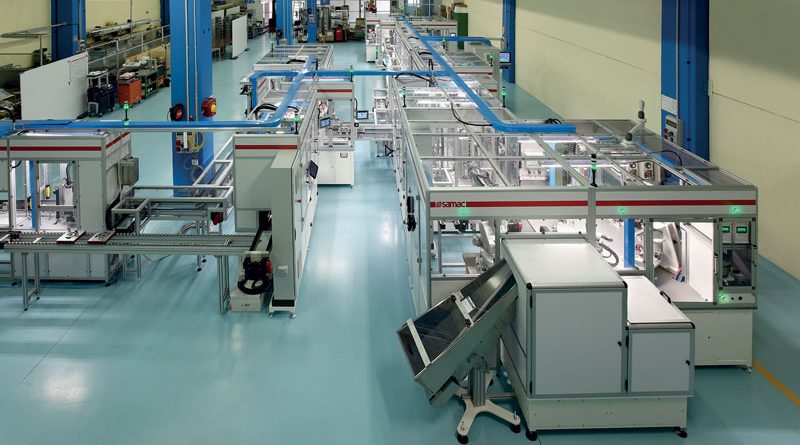Growing by Building Solid Partnerships
According to the points of view, three years may be many or very few. For Samac, a company specializing in designing and manufacturing customised assembly and testing machines, this was enough not only to expand its production area and workforce, but also to redefine the company’s position on the market, pushing it to build solid partnerships with customers. All this resulted in a significant and steady growth. We talked about it with the company’s Sales Manager, Giuseppe Neri.
by Franco Parrino
“In recent years we have been working hard to create a team of people who, as a group, have put a lot of efforts to promote Samac, its capabilities, strengths and identity as a company that aims to manufacture high-performance and reliable machines, but also to build and maintain strong relationships with customers”.
Giuseppe Neri, Sales Manager of the Vobarno-based company, whose foundation dates back to 1975, tells us very clearly what has been done, why it has been done and, above all, where Samac wants to go. For instance, the expansion of the production plant, which now has 9,000 square meters of covered space to ensure a suitable area for the development of machines, or rather the enhancement of the workforce, which now counts on over 80 people. “Samac has always been an appreciated and healthy company both from a technical and from a financial point of view”, adds Mr Neri. “Starting from these features, we started to approach potential new customers, in the automotive industry and beyond. We then managed to become partners of groups that needed to establish solid and long-lasting relationships. This strategy has allowed us to grow by about 20% a year in the last three years, diversifying our activities into several industrial sectors”. In the past, Samac had already shown its ability to be present in complex markets such as Germany. Is this still part of your strategy?
The German market is still a benchmark for the production and consumption of assembly and testing machines. Surely the strategy of working with countries, such as Germany, that have advanced technology gives us a boost in our proposition to customers. Today, in addition to Germany, our exports include countries such as Poland, Slovenia, France and the US, to name but a few.
Are assembly machines indeed changing, in terms of technology and flexibility required and implemented? And how important are investments in R&D to be prepared for such a scenario?
Being able to provide truly flexible solutions is a great challenge. Within the limits of reasonable flexibility, we are now working to try to raise the level of design standardization, thus resulting in the manufacturing stage.
Our R&D activity has been focused so far on this very aspect: customer demands are certainly changing in the initial phase of projects. We must admit that it is not easy at all, because the attempt to standardise things that are almost by definition customized is of course quite difficult. At the same time, however, we do not see it as a prohibitive challenge.
What would you say about the current situation of the assembly sector in Italy?
The Italian assembly machinery sector, although limited, has the advantage of being able to find non-trivial solutions to complex problems. However, if we look at the global scenario, the competition is quite fierce with more structured groups, whose key strength lies in their financial stability. Again, we are facing some complex challenges indeed. Characteristics such as flexibility, smartness and willingness to listen to customers – which we have always had in Italy – may not be enough.
It is therefore more complicated than in the past to rely on the traditional advantages of Italian companies in the sector, I guess… That’s right. Today, customers need to entrust the construction of machines to companies capable to ensure, first of all, that the job is done, but also capable to guarantee to be there when service or assistance activities are needed. The less structured companies may not always be able to guarantee it. All this might indeed affect the decisions made by customers.
What is your idea about the effectiveness of the tax incentives introduced by the government with the Industry 4.0 Plan looking at the assembly sector?
Assembly machines are special machines, so the investor runs a few more risks in our sector, although the increasing flexibility that these machines provide today has reduced the incidence of this issue. The hyper-depreciation has certainly favoured us, although for a limited share of our market, given that we export at least 50-60% of our production. For Italy, however, our ability to get involved has undoubtedly benefited us.

